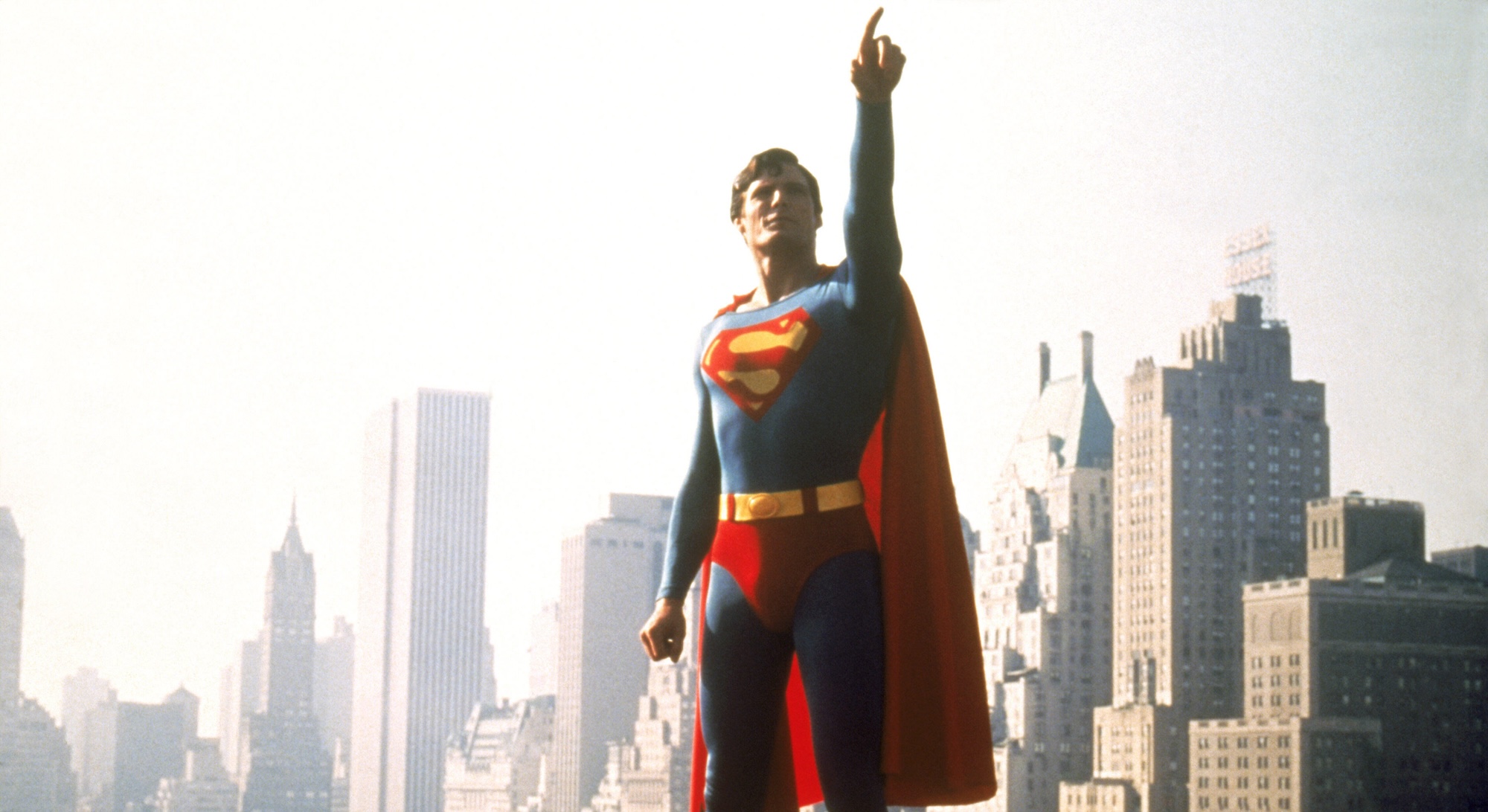
There is a wonderful scene midway through Richard Donner’s Superman: The Movie. In one of the quieter moments between the soaring action and groundbreaking VFX, the most impressive effect occurs as Christopher Reeve’s nebbish and hunched Clark Kent decides, briefly, to unmask himself before Lois Lane (Margot Kidder). It’s a beat that would be echoed in a million other superhero movies in the following century, but unlike those caped do-gooders, Reeve didn’t need to remove a mask or garment, a cape or cowl.
Instead the posture of Reeve’s Clark simply changes, his voice drops, and his very presence in the space shifts. In a moment, he makes a viewer believe one man can be two people: the everyman and the hero. It’s a beautiful sequence that one of Reeve’s sons, Matthew, picks up on in the new documentary, Super/Man: The Christopher Reeve Story. Matthew rightly points to it as a subtle but poignant beat which hinted at just how talented an actor Reeve was—a fact that was somewhat overlooked in his life and a tragically truncated career. However, it also speaks to Reeve as a person.
Christopher Reeve was a man whose feet could be deeply rooted in clay. Even, or perhaps especially, after a horse riding accident left him paralyzed from the shoulders down, Reeve could still suffer much from the darker, more human corners of our psyches. He also could find the strength and wherewithal to become the crusading advocate and leader for people living with paralysis, spinal cord injury, and other neurological disabilities. He could embody the very need to hope and persevere.
The ultimately enduring beauty of Ian Bonhôte and Peter Ettedgui’s new documentary Super/Man is that it never loses sight of that dichotomy despite obviously wanting to pay tribute to an icon. A recurring motif throughout the doc is an idealized duplicate of Reeve’s physique: a veritable statue created in a digital computer that perhaps a few too many times is returned to as a motif for how the world wants to best remember Reeve: a man carved from marble. Yet as much as that statue is depicted ascending into the ethereal heavens like the actor’s most famous role, it is at various other moments in the film encased in green rock and shadow. Self-made kryptonite and gloom.
It’s not a subtle metaphor, nor does it need to be. Yet even in a documentary produced by DC Studios, the filmmakers behind the excellent Lee Alexander McQueen documentary, McQueen, are able to trace the contours of both the man and the icon; the symbol who can inspire and the man who strove ceaselessly to don the godlike cape.
Along these lines, Super/Man moves on two parallel storytelling trajectories. One is the typical career narrative you expect from a documentary about a beloved public persona; it’s the life story built around that moment of breakthrough success in Superman, as well as the years of personal and professional hardship before and after, including by way of a tenuous relationship with his intellectual and absent father, the poet and scholar Franklin Reeve.
Yet rather than simply build, inevitably, to the life-changing tragedy we all know is coming, Super/Man also begins immediately with Reeve the Man. After a brief montage of Reeve’s Superman films, the picture in earnest opens on Memorial Day weekend 1995 when during an equestrian competition, Reeve suffers his fateful accident. The rest of the movie is an alternating, dual story about the life before and after the incident.
The storytelling choice is as intelligent as it is bittersweet. On the one hand, it immediately places Reeve’s whole life on one continuum, a reality he came to embrace after founding what became the Christopher and Dana Reeve Foundation. Additionally, it also makes Reeve’s entire extended family, including the wife who stayed by Christopher’s side through thick and thin, Dana, as well as the three children he had, central to the entire narrative.
Super/Man’s greatest asset is indeed access to Matthew, Alexandra, and Will Reeve, the eldest two of whom Reeve had with partner Gae Exton (who also participates in the documentary), and the latter with Dana, who passed away from lung cancer in 2006.
It is the memories that all three adult children pretty candidly share about their father, as well as Gae’s pained recollections of their complicated relationship, which allow Super/Man to peel back the layers and give insight to who the man in the cape was, both during his headiest days of success in the 1970s and afterward.
As recounted by his acting friends who knew him best coming up as a hungry thesp fresh out of Juilliard—including Jeff Daniels and Glenn Close, who also are likewise forced to speak for other lost friends like Reeve’s college roommate Robin Williams and scene partner William Hurt—Reeve was far more than the curled hair and bright emblem. He was an actor of deep aspirations and ambitions, who likely was only beginning to reach the type of textured character work he coveted in films like The Remains of the Day (1993) before his accident.
He was a man who struggled with being typecast as Superman, even as he obviously enjoyed the success and notoriety it brought to him. Later, this gifted and incredibly active man, one whom his children recount as mostly interacting with them in their earliest days by way of sport—skiing, biking, horseback riding—would struggle mightily with what paralysis took from him. Tellingly, his children even recount how for the first months of physical therapy, he would not seriously interact with other folks living with disability, half-convinced this would only be a temporary obstacle for him.
Reeve of course became one of the greatest advocates and champions for developing treatments and dignity for the disabled. But the film’s ability to show the often inner (and sometimes public) struggles he confronted with these responsibilities, even as the documentary rather tastefully sidesteps other details—such as the exact reasons or timeline for Reeve walking out of his home with Gae—becomes its greatest testament. In one particularly bittersweet interlude, a friend wonders where Robin Williams might be today if his lifelong friend, Chris, had still been around. The film admits both had moments of darkness, but when they were together they could create such light.
As with many recent documentaries about public figures, one senses there are stories left untold. There could even be more time given to Reeve’s other career achievements beyond the cape, or just more bits with Matthew, Alexandra, and Will musing on both Chris and Dana. But unlike so many recent docs about celebrities or childhood heroes, Super/Man feels ultimately truthful and honest. It seeks to genuinely, and fairly, cast Chris and Dana both in that marble by virtue of dwelling on the messier realities they overcame. By the time the movie is over, you will as well. It makes you, again, believe this man could fly.
Super/Man: The Christopher Reeve Story opens in theaters on Sept. 21 in the U.S. and on Nov. 1 in the UK.
The post Super/Man Review: Christopher Reeve Documentary Makes You Believe Still He Could Fly appeared first on Den of Geek.











